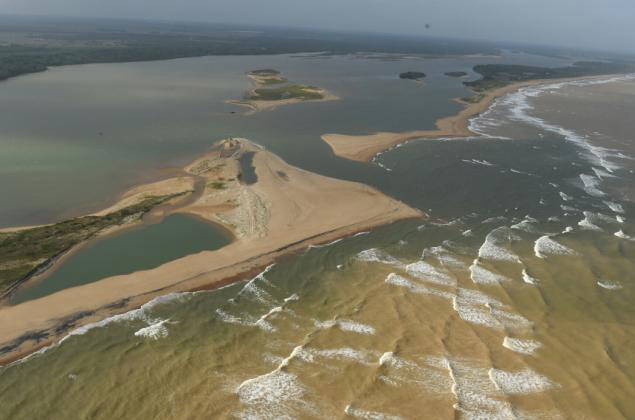Latest Photo Galleries
Brazilian Markets
17h36 Bovespa |
-0,17% | 124.171 |
16h43 Gold |
0,00% | 117 |
16h59 Dollar |
-0,48% | 5,2424 |
16h30 Euro |
+0,49% | 2,65250 |
ADVERTISING
Opinion: Restoring Life in the Rio Doce Valley
11/23/2015 - 10h23
Advertising
SEBASTIÃO SALGADO
The speed with which human action exploits natural resources has provoked great environmental disequilibrium in the Rio Doce valley.
The result is a picture now further aggravated by the tragedy of the Samarco dam rupture in Mariana, which is gravely compromising life in the Rio Doce river and the lives of the people who reside in its surroundings.
It is an environmental disaster without precedent, one which revolts and leaves us perplexed. The mud that runs along the riverbed has already buried lives, histories and continues to sterilize ecological diversity. We know that many losses will be irreparable, but we cannot let the tragedy paralyze us.
Preventing the damages from multiplying, holding everyone involved responsible and accelerating compensatory measures are only the first steps.
It is necessary to go beyond, with the structuring of a plan that will allow the reconstruction of the valley, in a responsible and committed way, to ensure the dignity of the more than 4 million people who reside there.
With almost two decades working in the Rio Doce valley and a nature rescue effort in an area deeply affected by the destruction of the rainforest, the Terra Institute defends the proposal for the creation of a fund with significant financial weight, subsidized by those responsible for the tragedy, with a model that will continuously generate resources for environmental, social, economic projects as well as employment and income across the basin.
The fund should cover all of the compensatory actions, requiring great commitment from the federal, state and municipal governments involved.
It will also demand the involvement of the public prosecutor and the states of Minas Gerais and Espírito Santo. Faced with the challenging scene of the type of environmental recovery required, there will also need to be a sharing of knowledge and technologies, with an ear to society, universities, and research centers.
A great collective effort could transform an environmentally deteriorated region into a model for ecosystemic reconstruction, the production of water and sustainable development.
The constitution, control and allocation of this fund should also be a collective and transparent effort, to avoid deviations in its function or even inadequate application in the face of the real rehabilitation needs of the Rio Doce valley.
The compensation values must first be measured through a detailed and technical survey of the damage involved, avoiding both the application of random fines not specifically geared towards the recovery of the valley and the temptation to use these resources for programs and actions that were already due to the people before the catastrophe.
We need to avoid the misuse of this fund, since it is more a question of social and collective interest rather than government politics. The deposit of these funds into a responsible bank entity, along the lines of the already existent special fund for the Amazon under the custody of the BDNES (Brazilian Development Bank), is of utmost importance.
The Terra Institute can add to this process with a nascent recovery program, using techniques already tested and recognized by ANA (National Water Agency) and United Nations-Water. Now more than ever, we need to produce water to restore life to the Rio Doce river .
The environmental reconstruction process will be long term, and should work with other innumerable interventions for social and economic rescue, led by different actors.
Moments like this should be confronted with a broader vision, since it allows deep reflection on the current way of life and possible solutions for a future of reconnection with nature.
SEBASTIÃO SALGADO, 72, photographer, co-founder and vice-president of Instituto Terra
Translated by SUGHEY RAMIREZ




